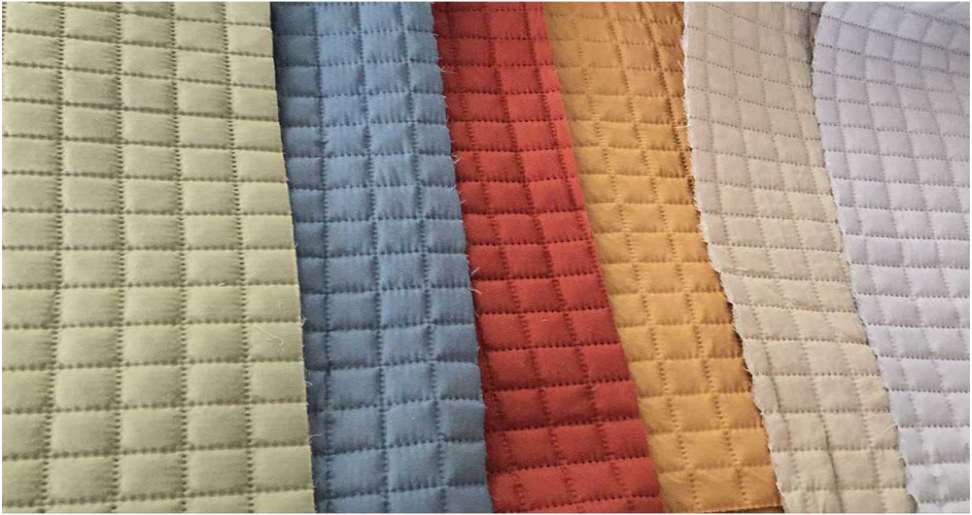In the world of quilting, the choice of fabric is pivotal to creating high-quality, aesthetically pleasing quilts. The right quilting fabric supplier can significantly impact the final product, influencing not just the design but also the durability and texture of the quilt. Selecting a reliable supplier involves several critical considerations. This article explores the key factors to keep in mind when choosing the best quilting fabric supplier for your needs.
1. Quality of Fabric
The quality of the fabric is paramount when choosing a quilting fabric supplier. High-quality fabrics ensure the longevity and overall appearance of the quilt. When evaluating suppliers, consider the following aspects:
- Material Composition: Look for suppliers that offer fabrics made from high-grade cotton, linen, or blends specifically designed for quilting. These materials typically have the right balance of durability and softness.
- Fabric Weight and Thread Count: Ensure that the supplier provides fabrics with appropriate weight and thread count for quilting. Higher thread counts generally result in more durable and luxurious fabrics.
A reputable quilting fabric supplier will offer detailed descriptions of their fabrics, including material composition and thread count, helping you make an informed decision.
2. Variety and Selection
A diverse selection of fabrics allows for more creative freedom and ensures that you can find the perfect match for your project. Consider the following:
- Range of Patterns and Colors: Choose a supplier with a wide range of patterns, colors, and prints to cater to different quilting styles and preferences. This variety is crucial for achieving unique and personalized designs.
- Specialty Fabrics: Look for suppliers that offer specialty fabrics such as batiks, prints, and novelty fabrics. These can add distinct elements to your quilt and enhance its visual appeal.
A supplier with an extensive inventory is likely to provide a broader range of options, making it easier to find exactly what you need.
3. Pricing and Value
Cost is a significant factor when selecting a quilting fabric supplier. While it is essential to stay within budget, quality should not be compromised. Consider the following:
- Competitive Pricing: Compare prices among different suppliers to ensure you are getting a fair deal. However, be cautious of extremely low prices, as they may indicate lower quality.
- Bulk Purchase Discounts: If you are purchasing fabric in large quantities, check if the supplier offers bulk purchase discounts. This can help reduce overall costs while ensuring you have a consistent supply of fabric.
Balancing cost and quality is crucial to ensure that you receive good value for your investment.
4. Customer Service and Support
A supplier’s customer service can significantly impact your purchasing experience. Look for the following qualities:
- Responsive Communication: Choose a supplier known for prompt and clear communication. This is important for resolving any issues or queries you may have.
- Order Fulfillment and Shipping: Evaluate the supplier’s track record for fulfilling orders accurately and delivering them in a timely manner. Reliable shipping practices are essential to avoid delays in your quilting projects.
Good customer service enhances your overall experience and ensures that any issues are handled efficiently.
5. Reputation and Reviews
The reputation of a quilting fabric supplier can provide insights into their reliability and product quality. Consider the following:
- Customer Reviews: Look for reviews and testimonials from other quilters. Positive feedback and high ratings are indicators of a supplier’s credibility and the quality of their fabrics.
- Industry Reputation: Research the supplier’s standing within the quilting community. A supplier with a strong reputation is likely to offer high-quality products and reliable services.
Checking reviews and reputation can help you make an informed decision and avoid potential pitfalls.
6. Sustainability and Ethical Practices
In today’s market, many quilters are concerned with the ethical and environmental impact of their fabric sources. Consider the following:
- Sustainable Practices: Look for suppliers that prioritize eco-friendly practices, such as using organic cotton or implementing sustainable manufacturing processes.
- Ethical Sourcing: Ensure that the supplier sources their materials ethically, providing fair wages and safe working conditions for their workers.
Choosing a supplier committed to sustainability and ethical practices aligns with broader values and contributes to a positive impact.
Conclusion
Selecting the best quilting fabric supplier involves careful consideration of various factors, including fabric quality, variety, pricing, customer service, reputation, and ethical practices. By evaluating these aspects thoroughly, you can ensure that you partner with a supplier who meets your needs and enhances your quilting projects. Whether you are a hobbyist or a professional quilter, making an informed choice will ultimately contribute to the success and satisfaction of your quilting endeavors.
Read Also:

